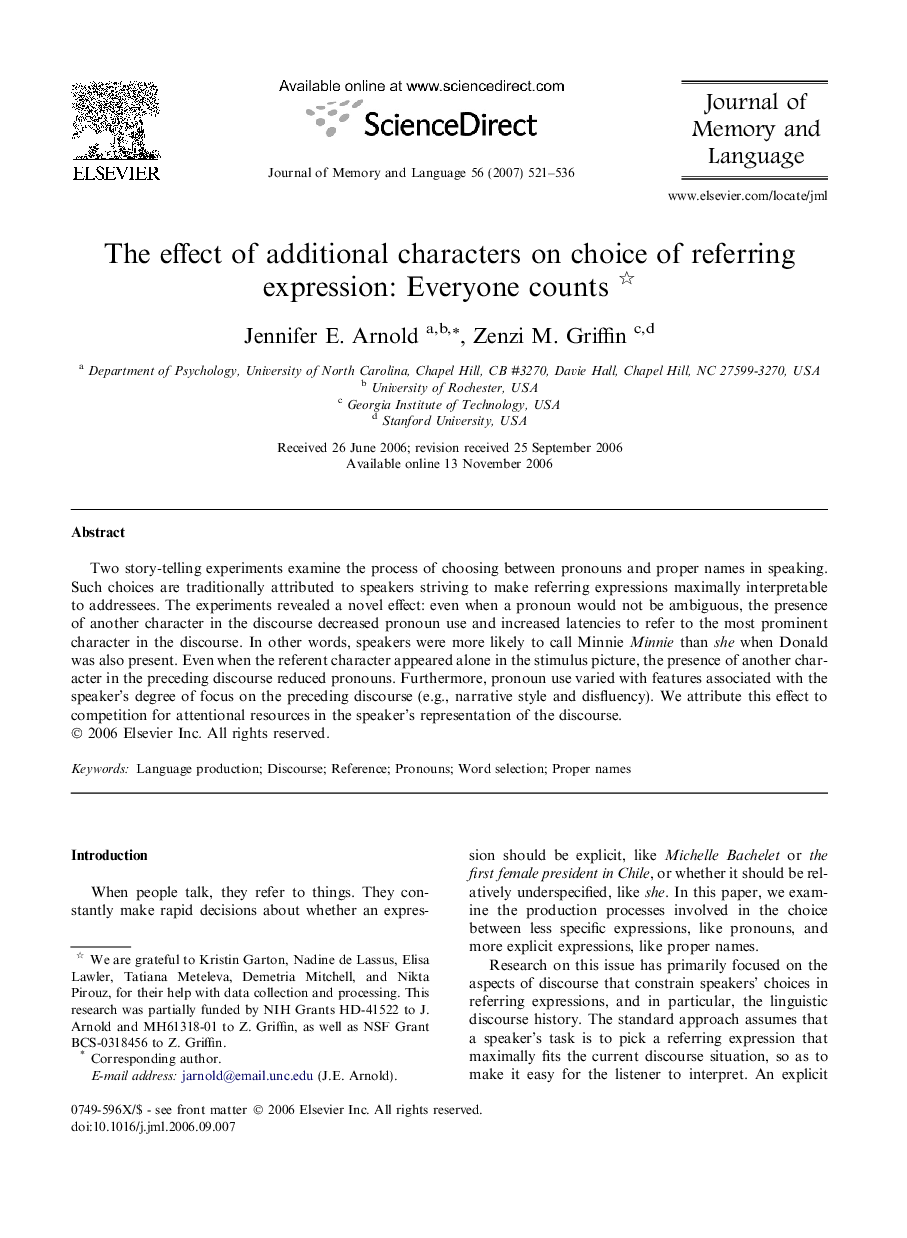| Article ID | Journal | Published Year | Pages | File Type |
|---|---|---|---|---|
| 932202 | Journal of Memory and Language | 2007 | 16 Pages |
Two story-telling experiments examine the process of choosing between pronouns and proper names in speaking. Such choices are traditionally attributed to speakers striving to make referring expressions maximally interpretable to addressees. The experiments revealed a novel effect: even when a pronoun would not be ambiguous, the presence of another character in the discourse decreased pronoun use and increased latencies to refer to the most prominent character in the discourse. In other words, speakers were more likely to call Minnie Minnie than she when Donald was also present. Even when the referent character appeared alone in the stimulus picture, the presence of another character in the preceding discourse reduced pronouns. Furthermore, pronoun use varied with features associated with the speaker’s degree of focus on the preceding discourse (e.g., narrative style and disfluency). We attribute this effect to competition for attentional resources in the speaker’s representation of the discourse.
